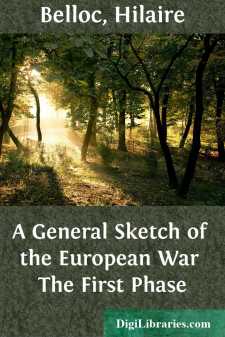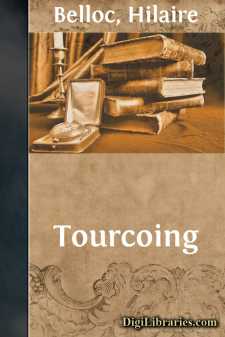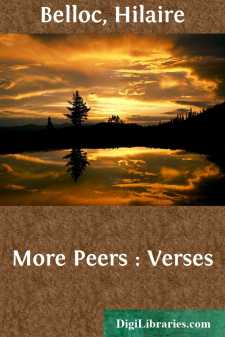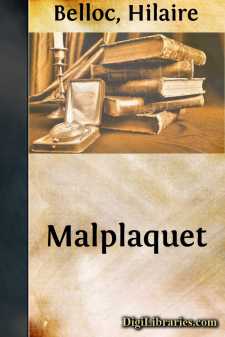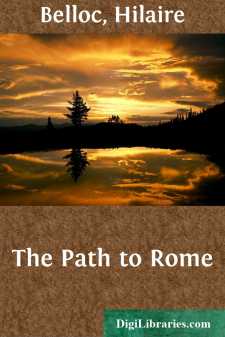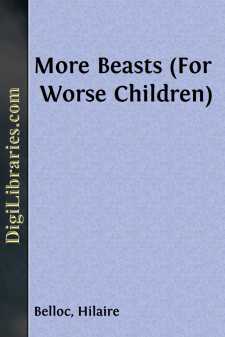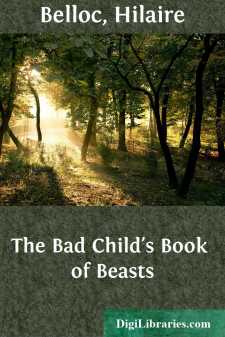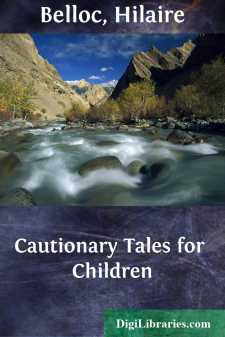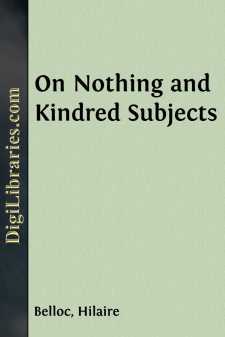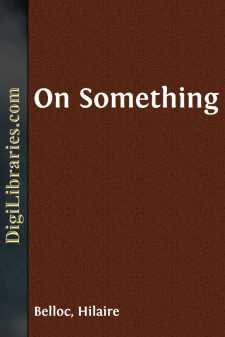Categories
- Antiques & Collectibles 13
- Architecture 36
- Art 48
- Bibles 22
- Biography & Autobiography 813
- Body, Mind & Spirit 141
- Business & Economics 28
- Children's Books 12
- Children's Fiction 9
- Computers 4
- Cooking 94
- Crafts & Hobbies 4
- Drama 346
- Education 46
- Family & Relationships 57
- Fiction 11826
- Games 19
- Gardening 17
- Health & Fitness 34
- History 1377
- House & Home 1
- Humor 147
- Juvenile Fiction 1873
- Juvenile Nonfiction 202
- Language Arts & Disciplines 88
- Law 16
- Literary Collections 686
- Literary Criticism 179
- Mathematics 13
- Medical 41
- Music 40
- Nature 179
- Non-Classifiable 1768
- Performing Arts 7
- Periodicals 1453
- Philosophy 64
- Photography 2
- Poetry 896
- Political Science 203
- Psychology 42
- Reference 154
- Religion 513
- Science 126
- Self-Help 83
- Social Science 81
- Sports & Recreation 34
- Study Aids 3
- Technology & Engineering 59
- Transportation 23
- Travel 463
- True Crime 29
Hilaire Belloc
Hilaire Belloc (1870–1953) was a prolific English-French writer and historian known for his satirical and polemical style. His works spanned various genres, including poetry, essays, and historical studies, with notable titles like "The Path to Rome" and "Cautionary Tales for Children." Belloc was a prominent figure in early 20th-century literature and politics, advocating for Catholic social teaching and critiquing the socio-political issues of his time.
Author's Books:
Sort by:
by:
Hilaire Belloc
INTRODUCTION. It is the object of this book, and those which will succeed it in the same series, to put before the reader the main lines of the European War as it proceeds. Each such part must necessarily be completed and issued some little time after the events to which it relates have passed into history. The present first, or introductory volume, which is a preface to the whole, covers no more than...
more...
by:
Hilaire Belloc
PART I THE POLITICAL CIRCUMSTANCE The Battle of Tourcoing is one of those actions upon which European history in general is somewhat confused, and English history, in particular, ignorant. That British troops formed part of those who suffered defeat, and that a British commander, the Duke of York, was the chief figure in the reverse, affords no explanation; for the almost exactly parallel case of...
more...
by:
Hilaire Belloc
Lord Roehampton During a late election LordRoehampton strained a vocal chordFrom shouting, very loud and high,To lots and lots of people whyThe Budget in his own opin--Ion should not be allowed to win. He sought a Specialist, who said:"You have a swelling in the head:Your Larynx is a thought relaxedAnd you are greatly over-taxed." "I am indeed! On every side!"The Earl (for such he was)...
more...
by:
Hilaire Belloc
THE POLITICAL MEANING OF MALPLAQUET That political significance which we must seek in all military history, and without which that history cannot be accurate even upon its technical side, may be stated for the battle of Malplaquet in the following terms. Louis XIV. succeeding to a cautious and constructive period in the national life of France, this in its turn succeeding to the long impotence of the...
more...
by:
Hilaire Belloc
PRAISE OF THIS BOOK To every honest reader that may purchase, hire, or receive this book, and to the reviewers also (to whom it is of triple profit), greeting--and whatever else can be had for nothing. If you should ask how this book came to be written, it was in this way. One day as I was wandering over the world I came upon the valley where I was born, and stopping there a moment to speak with them...
more...
by:
Hilaire Belloc
INTRODUCTIONThe parents of the learned child(His father and his mother)Were utterly aghast to noteThe facts he would at random quoteOn creatures curious, rare and wild;And wondering, asked each other:"An idle little child like this,How is it that he knowsWhat years of close analysisAre powerless to disclose? Our brains are trained, our books are big,And yet we always failTo answer why the...
more...
by:
Hilaire Belloc
INTRODUCTIONI callyou bad, my little child,Upon the title page,Because a manner rude and wildIs common at your age. The Moral of this priceless work(If rightly understood)Will make you—from a little Turk—Unnaturally good. Do not as evil children do,Who on the slightest groundsWill imitatethe Kangaroo,With wild unmeaning bounds: Do not as children badly bred,Who eat like little Hogs,And when they...
more...
by:
Hilaire Belloc
INTRODUCTION Upon being asked by a Reader whether the verses contained in this book were true. And is it True? It is not True.And if it were it wouldn’t do,For people such as me and youWho pretty nearly all day longAre doing something rather wrong.Because if things were really so,You would have perished long ago,And I would not have lived to writeThe noble lines that meet your sight,Nor B. T. B....
more...
by:
Hilaire Belloc
My dear Maurice, It was in Normandy, you will remember, and in the heat of the year, when the birds were silent in the trees and the apples nearly ripe, with the sun above us already of a stronger kind, and a somnolence within and without, that it was determined among us (the jolly company!) that I should write upon Nothing, and upon all that is cognate to Nothing, a task not yet attempted since the...
more...
by:
Hilaire Belloc
A PLEA FOR THE SIMPLER DRAMA It is with the drama as with plastic art and many other things: the plain man feels that he has a right to put in his word, but he is rather afraid that the art is beyond him, and he is frightened by technicalities. After all, these things are made for the plain man; his applause, in the long run and duly tested by time, is the main reward of the dramatist as of the painter...
more...


